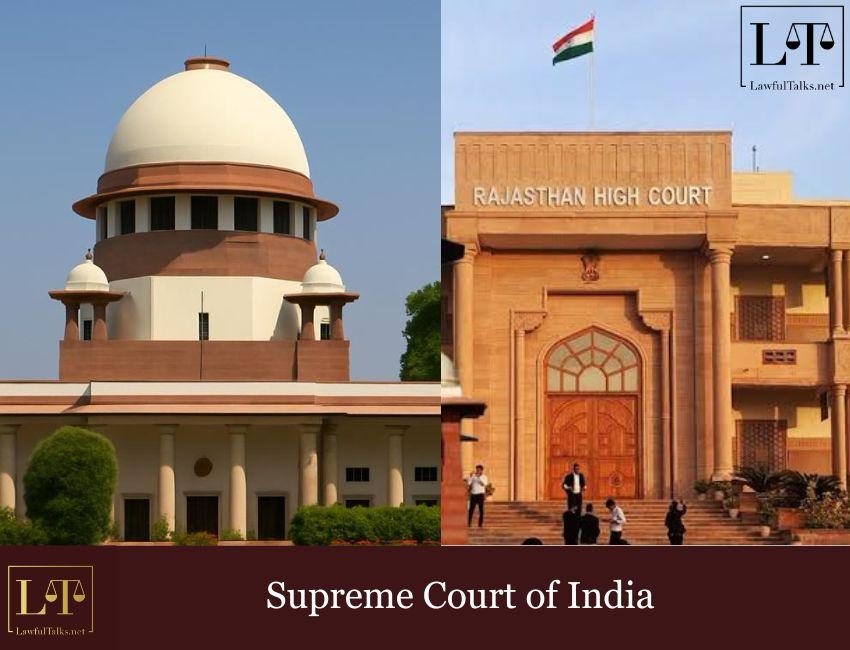Allahabad HC Sets Aside Afzal Ansari's Conviction, Allows Him to Continue as MP

The Supreme Court has set aside a Rajasthan High Court order that had refused anticipatory bail to a couple, holding that what was essentially a civil dispute had been wrongly given a criminal angle. Smiling as he perused the case file, Justice JB Pardiwala quipped ,“We are not going to lose our cool today. Today, we are controlling like anything. The medicine is to laugh,” he said, smiling as he went through the case file.

His remarks came in the backdrop of a recent episode earlier this month, when he directed that certain criminal cases be withdrawn from Justice Prashant Kumar’s docket at the Allahabad High Court.
The Bench of Justice JB Pardiwala and Justice R Mahadevan approached the hearing with light humour, with Justice Pardiwala remarking that he intended to “keep his cool” and “share a laugh” this time.
That direction had been linked to concerns that criminal prosecution was being allowed to proceed in disputes that were purely civil in nature. Justice Pardiwala later clarified to Chief Justice of India BR Gavai that there was no intention to cause embarrassment, and acknowledged that case allocation lies solely with the Chief Justice of the High Court.
Facts:
In the present case, the couple had challenged the High Court’s refusal to grant them anticipatory bail in a matter concerning an alleged unpaid balance from a plywood purchase.
The complainant claimed that ₹3.5 lakh had been paid, but ₹12.5 lakh remained outstanding. An FIR was registered against the couple for cheating, criminal breach of trust, and criminal conspiracy.
On examining the FIR, the Supreme Court observed that the only possible allegation was cheating and that the offence of criminal breach of trust could not arise once there had been a sale transaction.
“It is obvious that the only submission before the High Court could be that it is a case of civil dispute. There is no question of criminal breach of trust once there is a sale transaction. This is a settled position of law,” the Bench said.
The Court criticised the reasoning adopted by the High Court, particularly the public prosecutor’s submission that the outstanding amount could not be recovered because the accused were protected from arrest.
“What we have understood is that according to the State, police machinery is required for the purpose of recovery of the balance amount. We need not say anything further in the matter. Ordinarily, we do not set aside orders of the High Court denying bail. But this is an order we deem fit to set aside,” Justice Pardiwala observed.
During the hearing, the State’s counsel clarified that the claim that the appellants were absconding was the only submission before the High Court.
Justice Pardiwala responded that mere absence, possibly due to fear, could not establish guilt. “Just because he had to pay some amount to that seller, will the police come and pick us up? Why do you need the services of the police in this matter?” he asked.
The Bench also reflected on the misuse of criminal process in cases of money recovery.
“Had the High Court applied a little mind, we would not have been bothered by this unnecessary litigation. The party had to come to the Supreme Court, spend money for engaging a lawyer, we had to read the matter... Should we not save this unnecessary litigation?” Justice Pardiwala remarked.
He further referred to a recent case involving the Allahabad High Court, where civil and criminal remedies had been wrongly allowed to proceed together in a purely civil dispute.
“The judge has gone to the extent of stating that asking the complainant to pursue civil remedy would be very unreasonable as civil suits take a long time, and therefore the complainant may be permitted to institute criminal proceedings for recovery... The judge concerned has not only cut a sorry figure for himself but has made a mockery of justice. We are at our wits’ end to understand what is wrong with the Indian Judiciary at the level of High Court,” Justice Pardiwala had said in that earlier matter.
This time, however, the judge opted for humour over frustration while reiterating that debt recovery disputes should be resolved through civil remedies, not criminal prosecution.

Anam Sayyed
4th Year, Law Student
Latest Posts
Categories
- International News 19 Posts
- Supreme Court 347 Posts
- High Courts 362 Posts



















































































































































































































































































































































































































































































































































































































































































































































